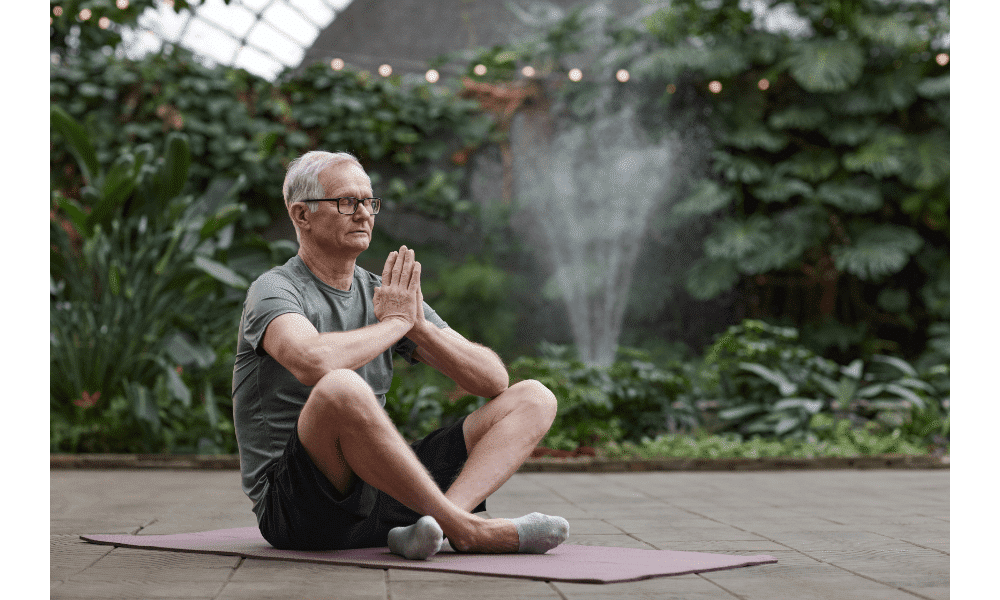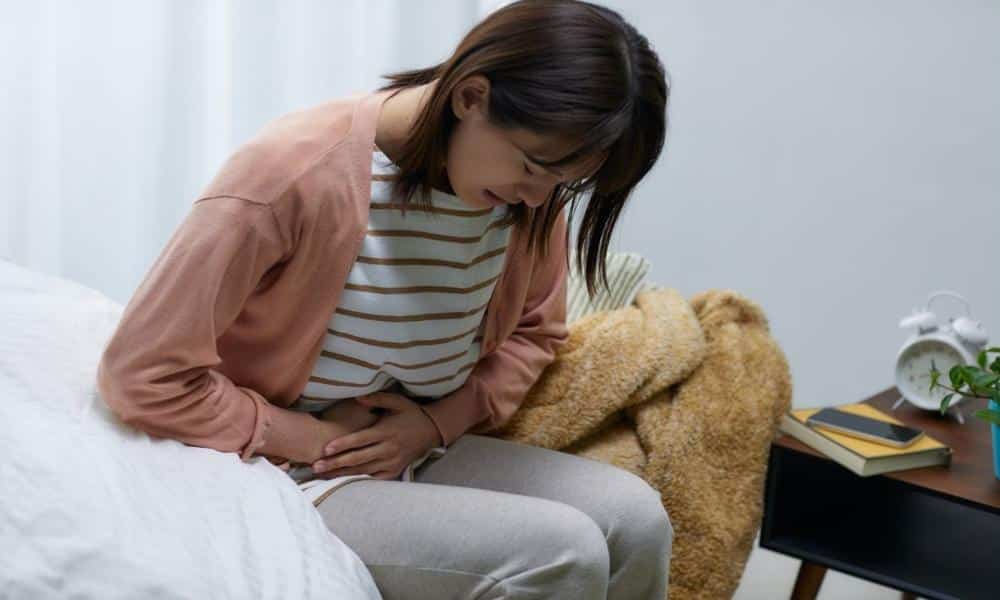
Now, you may be wondering why it’s so important to manage stress to alleviate the symptoms of BPH. The answer is that learning to manage stress will improve your quality of life.
Understandably, the symptoms of BPH or an enlarged prostate can cause stress. Urgently needing to urinate while you’re traveling to work, out on the golf course, or in the middle of a business meeting is stressful. Having to get out of bed to visit the bathroom numerous times a night leads to poor sleep, which in turn adds to your stress. So what can you do about it? Well, let’s start by looking at the relationship between stress and BHP.
Can stress cause BHP?
As with many other conditions and diseases, stress can be an aggravator. But does stress cause BHP? In short, no. However, various studies indicate that stress can worsen BHP symptoms. One such study carried out in 2015 revealed that anxiety aggravates lower urinary tract symptoms (suggestive of benign prostatic hyperplasia) and according to the Harvard Medical School, there may be a scientific connection between stress and BHP.
It probably comes as no surprise that the higher the levels of stress and anxiety, the worse the BPH symptoms become – hence the importance of managing stress levels as you age, particularly if you have BHP.
How to ease the symptoms of BHP and stress
Fortunately, there are a couple of ways to take the stress out of managing BPH symptoms.
Be proactive with your bladder health
Not everyone with BPH requires treatment but to stay as healthy as you can, it’s important to check in with your doctor. If you suspect you may have an enlarged prostate then don’t ignore it. It’s vital to visit a medical professional with experience in this field such as an urologist or primary care doctor. Once your symptoms are under control, they’re likely to recommend regular check-ups to monitor the situation.
Keep your bladder happy
To reduce your BPH symptoms, it helps if you don’t place too much pressure on your bladder. Here are 3 tips that help to avoid irritating your bladder and pelvic muscles.
- Ensure that you take the necessary time to fully empty your bladder when urinating. If you encounter challenges, consider employing the double urination technique—pause briefly after completing the initial urination and attempt to urinate once more.
- Avoid procrastination. Postponing urination and waiting until the eleventh hour can heighten the difficulty of the process.
- Incorporate Kegel exercises into your routine. Strengthening the muscles surrounding your bladder through these exercises can enhance bladder control.
5 Techniques to reduce overall stress levels
Below are five simple techniques that you can easily incorporate into your daily life to ease stress and help fend off the adrenaline rush that can worsen the symptoms of BPH.
- Get moving
Physical activity reduces stress and makes you feel much better overall. Exercises combining physical cardiovascular activity and relaxation are particularly beneficial. 20 to 30 minutes a day of tai chi, yoga, light jogging or walking can all help to reduce the symptoms of BPH and aid weight loss – which will benefit your overall health.
- Learn to meditate
Meditation is a quick and simple way to reduce stress. Set aside 10 to 20 minutes each day to sit quietly and calm your mind and body. As the physical and emotional stress washes away, it will leave you feeling fresh and relaxed, and ready to face any challenges that come your way with a healthy attitude. Here are a few tips for those who are new to meditation.
- Strengthen your core
Partially due to the Covid-19 pandemic, many professions are predominantly sedentary with more jobs involving prolonged periods spent sitting at a desk or, in the case of the transportation industry, extended hours of driving. Long periods of sitting contribute to the weakening of the pelvic floor and core muscles which play a crucial role in emptying the bladder. To counteract all this sitting, try to incorporate daily exercises like planks or attend yoga or pilates classes that focus on the core to maintain and strengthen your pelvic floor muscles.
- Avoid binge-eating
Many people when stressed turn to food, nicotine, caffeine, or alcohol to relax. Not only are these methods ineffective at reducing stress but they may cause you to feel more stressed while simultaneously worsening your enlarged prostate symptoms. Studies have shown obesity to be linked to BPH while smokers are also more at risk of developing the condition. Both caffeine and alcohol irritate the bladder and prostate, increasing BPH symptoms temporarily.
- Get a good night’s sleep
Try and get at least six hours of good sleep. For men with BHP, try limiting your fluid intake to two to four hours before bedtime. Medications, known as anticholinergics, can also help reduce the need to urinate more frequently. Here are a few more tips from the CDC to help you enjoy better sleep.
Don’t let stress add to your worries
If these strategies don’t sufficiently alleviate your symptoms of BPH, please don’t worry. Each case of BPH is unique, and there are several effective treatment alternatives if lifestyle adjustments fall short. Medications and minimally invasive surgical procedures such as Prostate Artery Embolization (PAE) are among the available options.
To navigate the array of treatments, why not schedule a consultation with the experienced team at MINT? We can discuss your best options to help you make an informed decision about the most suitable approach for your specific situation.

